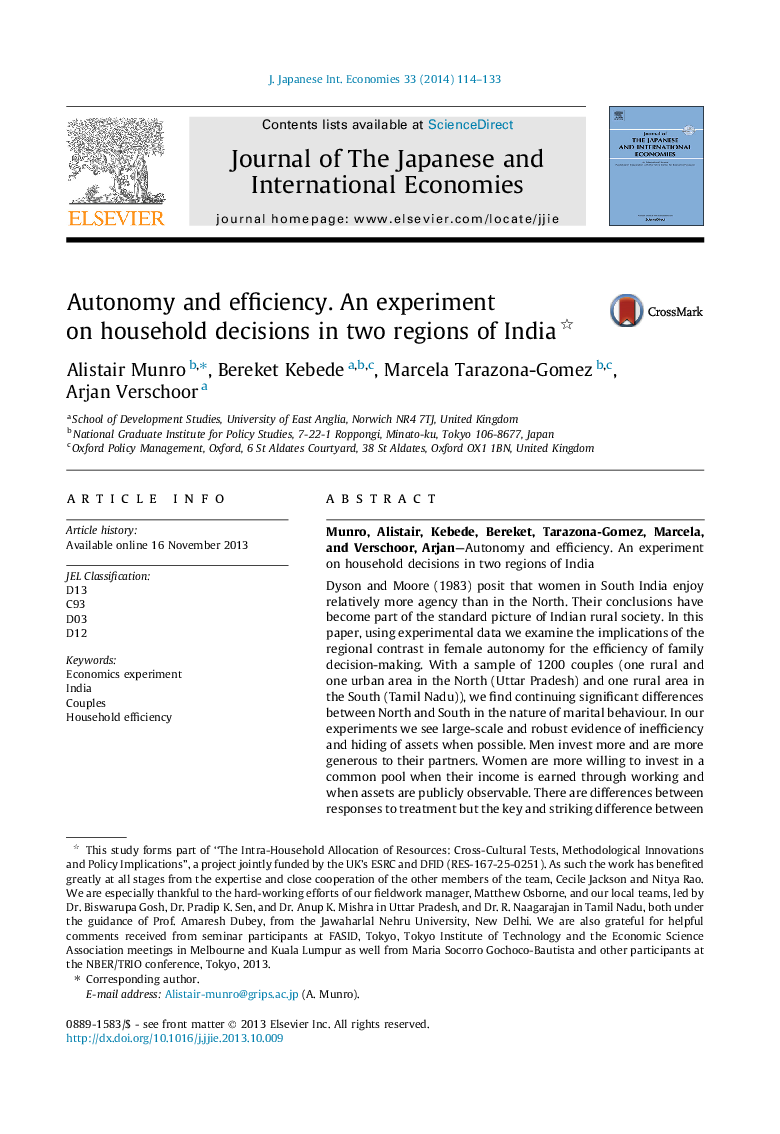| Article ID | Journal | Published Year | Pages | File Type |
|---|---|---|---|---|
| 964525 | Journal of the Japanese and International Economies | 2014 | 20 Pages |
•The first large-scale family decision-making experiment in India.•1200 Tamil Nadu and Uttar Pradesh couples play intra-household public good games.•Survey reveals continuing evidence of lower autonomy for women in the North.•Men and women contribute more to the household good in the North than in the South.•Robust evidence of inefficiency, along with widespread hiding of winnings.
Dyson and Moore (1983) posit that women in South India enjoy relatively more agency than in the North. Their conclusions have become part of the standard picture of Indian rural society. In this paper, using experimental data we examine the implications of the regional contrast in female autonomy for the efficiency of family decision-making. With a sample of 1200 couples (one rural and one urban area in the North (Uttar Pradesh) and one rural area in the South (Tamil Nadu)), we find continuing significant differences between North and South in the nature of marital behaviour. In our experiments we see large-scale and robust evidence of inefficiency and hiding of assets when possible. Men invest more and are more generous to their partners. Women are more willing to invest in a common pool when their income is earned through working and when assets are publicly observable. There are differences between responses to treatment but the key and striking difference between the North and the South is that in both rural and urban sites in the North household efficiency is considerably greater than in the South.
